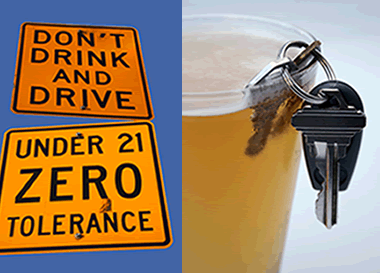These days, in most states, it is a safe bet to assume that once an individual is convicted of any DUI-type offense, there will be ramifications on their driving privileges. In most states, an individual who refuses to take a BAC test automatically has their driver’s license suspended. The length of time varies depending on the state but typically ranges from three to 12 months.

In some states, the arresting officer confiscates the individual’s driver’s license once they are arrested, and the individual gets a temporary driver’s license until their trial. Upon conviction of any DUI offense, an individual’s driver’s license will most likely be restricted, suspended, or revoked depending on the state and the nature of the offense. First-time offenders most often have suspended licenses for a period of 90 days, but again, these suspensions can vary from state to state and case to case, and they are subject to being shorter or longer depending on the judge and situation.
Most often, individuals have to meet certain specifications, such as having interlock systems installed on their car ignition if they are issued restricted driver’s licenses, or they must wait for a specified period of time to get their license back if it is suspended or revoked. In many of these later instances, individuals often have to appear before the Department of Motor Vehicles and formally evaluated in terms of their risk for future infractions in order to get their full driver’s license returned. All of these issues incur a further outlay of money, are significantly embarrassing for most individuals, and produce significant stress and resentment.
Expect to Pay More Money for Car Insurance
Individuals who have DUI offenses on their record pay significantly higher premiums for car insurance. There is no way around this. In many cases, insurance companies may drop them, and individuals are forced to seek out insurance companies that will accept them. These companies typically charge significantly higher rates for limited automobile insurance.
Expect to Be Placed on Probation
Because being convicted of a DUI offense is a criminal offense, the vast majority of individuals will be placed on probation for some period of time following their conviction. Probation costs money, and individuals can expect to shell out more money here.
The specifications of probation require that an individual not use alcohol or other drugs, and not be in places where the primary purpose of the business is to serve alcohol (e.g., a bar). Other restrictions may be incurred depending on the state, situation, judge, and the individual’s probation officer. While on probation, individuals are required to notify their probation officer and get permission to leave the state and in some cases even the city in which they reside.
One Might Have to Attend an Alcohol Education Program
More and more jurisdictions are requiring that even first-time offenders attend a formal alcohol education program. The program can vary depending on the situation and the state where the program is delivered. Expect to pay for the program and have your attendance monitored in some way.

One Might Have to Complete a Formal Alcohol or Substance Use Disorder Evaluation
The courts will often require that an individual be formally evaluated by a mental health provider that is attached to the court system or a private mental health provider for substance abuse issues prior to going to trial. This assessment often includes an interview with the healthcare provider/clinician and completing a series of tests. The court often uses this information to determine sentencing, probation, the need for treatment, etc.
Again, these assessments can be relatively expensive, and the court does not pay for them in most cases. One should expect to shell out even more money for this court requirement if it is imposed.
Courts Most Often Require That the Individual Receives Substance Use Disorder Treatment
The legal system does not want to see repeat DUI offenders. Most courts require that individuals receive substance use disorder treatment as a condition of their probation. If individuals do not attend treatment or are not able to demonstrate to the probation officer that they are attending treatment, they could be subject to jail or even steeper fines.
The treatment is often specified by the judge and can include participation in Alcoholics Anonymous meetings and/or substance use disorder therapy. Individuals may be required to attend inpatient or residential rehabilitation programs for alcohol abuse. The specification of treatment is often a requirement for an individual to complete probation and may be a requirement for an individual to get their driver’s license back.
